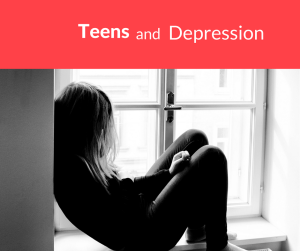Adolescents, Teens, Depression & The Warning Signs
/By Concentric Counselor Katie Ho, LPC, NCC
At a time in life when the only thing certain is constant change, recognizing and being aware of depression during adolescence can be a challenging feat without the knowledge of warning signs and risk factors. Mental health and the seriousness of depression continue to be topics of conversation following the headlines of national news and tragedies - but an equally, if not more urgent conversation is the one that needs to be started at home. The pressures of adolescence and impact of today’s culture of social media appearances and limited interpersonal connection only reinforce the need for education and awareness on depression. Parents and caregivers can provide their support and intervention through having the skills and knowledge to address their young person’s greatest mental health needs.
The answer to why we should talk about depression with teenagers is becoming more clear as the topic continues to be normalized, de-stigmatized and commonplace in the discussion of healthy emotional development; but the answer of how is where the light could shine a little brighter. How do you initiate a conversation around feelings, emotions and concerns of your child or loved one’s changes in mood and psychological health? How do you create a safe environment that fosters and promotes honest, sometimes uncomfortable dialogue about profound sadness or even thoughts of self-harm or suicide? Many of those answers involve one important action: listening.
In order to fully understand and be prepared for a conversation around your young person’s mental health, it’s vital to know the warning signs and symptoms involved with depression during adolescence. These characteristics can be different than how they typically manifest in adults, and can oftentimes be mislabeled as expected changes during a new phase of life. It’s important to distinguish between depression and normal sadness. Depression can consume their day-to-day life; interfering with the ability to work, eat, sleep, study and have joy. It can involve feelings of helplessness, hopelessness and worthlessness with little to no relief.
Here are some signs and symptoms of adolescent depression:
● While some individuals may appear sad - many and most appear irritable (unrelenting)
● Negative view of self and/or the world and future
● Withdrawal from family and friends (isolation)
● Anger/Rage
● Overreaction to criticism
● Excessive sleeping
● Significant change in appetite
● Increased reckless or impulsive behaviors
● Substance use or acting out in an attempt to avoid feelings
● Violence
● Running away
If you suspect your teenager is struggling with depression or begins showing signs of concerning behavior, finding the time, the patience and the space is the first step in creating an environment for an honest discussion.
❖ Remember the value in listening over lecturing: initiating a conversation about emotional pain or hardships means being willing to hear their truth without judgment or criticism.
❖ With unconditional love will need to come unconditional support; let them know you’re committed to helping them fully and in a way that respects their experience, choice and voice.
❖ Be gentle, but persistent - if your teenager claims nothing is wrong, but is otherwise unable to explain the concerning observations and behaviors, trust your intuition and consider options for getting them to open up. The most important goal is to get them talking - whether it’s to you or to a reputable third party, give them the resources and options to share with someone they can trust.
❖ Validate their feelings - always. Try to avoid talking them out of their feelings or giving them an alternative perspective in which to view their experience. Acknowledging and communicating that you believe and hear them will foster trust and empathy. In combating adolescent depression, it can be effective to take a holistic approach - making their physical health as much of a priority as their social and emotional health. Encourage movement!
Physical activity can be incorporated in a number of ways, whether it’s a sports team, individual activity, dance class, walking the dog or riding their bike - all movement is good movement! Healthy, balanced eating and limited screen time are essential requirements for anyone’s lifestyle, but particularly those in adolescence. These items can also be partnered with the important aspect of positive interactions with family or loved ones. Sharing a meal or spending quality time can help that young person feel connected and valued.
Should the need for professional help and intervention be determined, be sure to involve your teen in those decisions. Respect their thoughts and opinions, and talk openly about their options for treatment. It may be a struggle for them to feel connected or comfortable talking with a professional, and collaborating with them on identifying someone who could meet their needs may help to bridge that gap. Depression and recovery can feel scary to both parent and child, but having open conversations with clear understandings of love, validation and support can make helping them more manageable so that they can live their most meaningful life.




